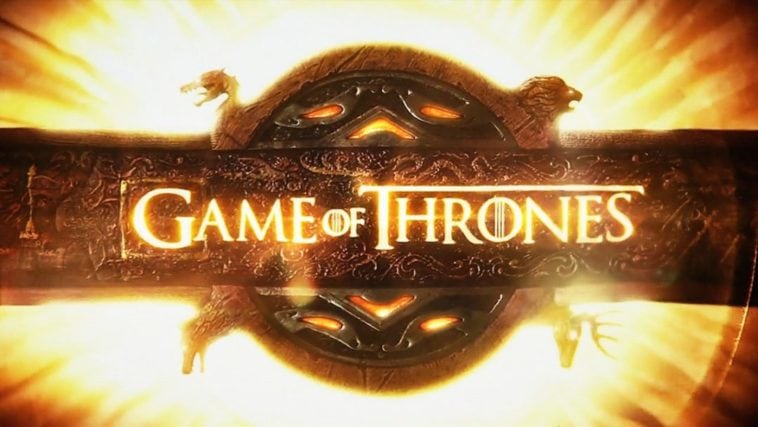Unveiling the Realm of “Game of Thrones”: A Journey Through Its Epic Saga
Key Takeaways
- “Game of Thrones” revolutionized television with its intricate plots and rich character development.
- The series is celebrated for its bold storytelling, featuring political intrigue, betrayal, and the quest for power.
- It sparked discussions on the portrayal of violence and sexuality, pushing the boundaries of TV narratives.
- Despite controversy, particularly regarding its final season, the show remains a cultural phenomenon.
- The series’ impact extends beyond television, influencing music, literature, and even baby names.
Picture this: a world where dragons soar above the clouds, noble houses vie for the Iron Throne, and the threat of eternal winter looms. This is the realm of “Game of Thrones,” a saga that captured hearts and imaginations across the globe. As someone who dove headfirst into the tumultuous waters of Westeros, I found myself swept away by the currents of its storytelling, where each twist was as unpredictable as the last.
A Tapestry of Intrigue and Power
“Game of Thrones” wasn’t just a show; it was a phenomenon that redefined television. It intertwined the fates of characters so richly developed, they felt as real as the person next to you. The series thrived on the unexpected, where no character, no matter how beloved, was safe from the machinations of power. It was this fearless narrative that ensnared viewers, drawing us into debates and discussions that lasted long into the night.
The political intrigue of King’s Landing, with its backstabbing and power plays, was a chess game where the pieces were constantly in motion. As someone who reveled in the complexity of these plots, I found myself trying to anticipate the next move, only to be surprised at every turn. The series was a masterclass in storytelling, where each decision had weight, and the ripple effects were felt across continents.
A Reflection of Humanity
At its core, “Game of Thrones” was a reflection of our own world, mirroring the best and worst of humanity. It explored themes of honor, loyalty, and the quest for power, often blurring the lines between hero and villain. The show wasn’t afraid to delve into the darker aspects of human nature, presenting a world that was unforgiving and brutal, yet compelling in its realism.
The portrayal of characters like Tyrion Lannister, who navigated the treacherous waters of politics with wit and cunning, showed that strength came in many forms. Meanwhile, Daenerys Targaryen’s journey from exile to queen embodied the theme of transformation, challenging perceptions of power and leadership.
A Realm Divided
Despite its acclaim, “Game of Thrones” was not without its controversies, particularly regarding its depiction of violence and sexuality. Some argued that the show relied too heavily on shock value, overshadowing its narrative strengths. Yet, it was this very willingness to push boundaries that kept viewers on the edge of their seats, eager to see what lay beyond the veil of civility.
The series’ conclusion, while divisive, marked the end of an era. For better or worse, it sparked conversations about storytelling and the expectations we place on the narratives we cherish. In the aftermath, the legacy of “Game of Thrones” endures, a testament to its impact on popular culture.
Legacy of a Throne
“Game of Thrones” extended its influence beyond the screen, permeating music, literature, and even the names we give our children. It inspired a new generation of storytellers, proving that epic fantasy could resonate with a mainstream audience. The series may have concluded, but its mark on the landscape of television and popular culture is indelible.
In reflecting on my journey through Westeros, I’m left with a sense of awe at the power of storytelling. “Game of Thrones” was more than just a show; it was a shared experience that brought people together, challenging us to question the nature of power, loyalty, and human ambition.
Frequently Asked Questions
1. Why did “Game of Thrones” become so popular?
“Game of Thrones” captivated audiences with its intricate plotlines, complex characters, and willingness to subvert traditional storytelling norms. Its blend of political intrigue, fantasy elements, and moral ambiguity struck a chord with viewers worldwide.
2. Was the ending of “Game of Thrones” well-received?
The ending of “Game of Thrones” was divisive among fans and critics. While some appreciated the conclusion of various story arcs, others felt it rushed and unfaithful to the characters’ development.
3. How did “Game of Thrones” impact television?
“Game of Thrones” set new standards for production value, storytelling, and audience engagement in television. It proved that epic fantasy could achieve mainstream success and influenced the development of similar genre shows.
4. Are there any spin-offs or related shows?
Yes, HBO has developed spin-offs, including “House of the Dragon,” a prequel focusing on the history of House Targaryen, exploring the events leading up to and including the Targaryen civil war, known as the Dance of the Dragons.
5. How has “Game of Thrones” influenced popular culture?
“Game of Thrones” has had a significant impact on popular culture, influencing other media, fashion, baby names, and even political discourse. It remains a reference point for discussions on storytelling and character development.





